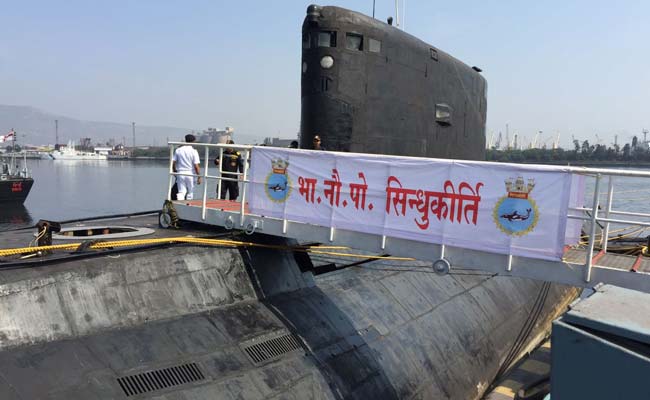
As the Indian Navy celebrates its "Year of Submarines", marking 50 years since it started operating them first, NDTV got a rare first-hand look at the INS Sindhukirti one of Navy's 13 diesel-electric submarines.
Here are 10 things to know about this submarine:
The INS Sindhukirti, among the oldest operational submarines in the Navy, is Kilo-class submarine and can launch torpedoes, missiles and even mines.
Acquired in 1990, the submarine the still forms a part of the Navy's cutting edge as it's been refitted - virtually rebuilt with modern sensors weapons and systems.
These systems make it "a hole in the water", the Navy says, a submarine so quiet that detecting it in the ocean's depths is almost impossible unless you exact exactly where to look at a particular time.
Designed in an era when crew comfort was an afterthought, the Sindhukirti is no luxury liner - every inch here is occupied by machinery.
The submarine has one toilet for the nearly 70 people on board. There are no showers, and the crew wear light-blue coloured gowns disposed once every three days.
In its battery pit, there are hundreds of batteries on board - each weighing more than 900 kilos each.
The INS Sindhukirti, like other Kilo-class submarines, is slower than nuclear submarines and cannot sail at more than 31 kilometres per hour underwater.
However, their main advantage over nuclear submarines is their discreteness - operating far quieter.
Fully stocked, the submarine can embark on missions that can last up to 40 days. But it has to ascend once every 24 hours to what is known as snorkelling depth.
As it hovers just short of the surface of the sea, fumes from its diesel engines are 'snorted' out and stale air on board the submarine is replaced with fresh air from outside.

